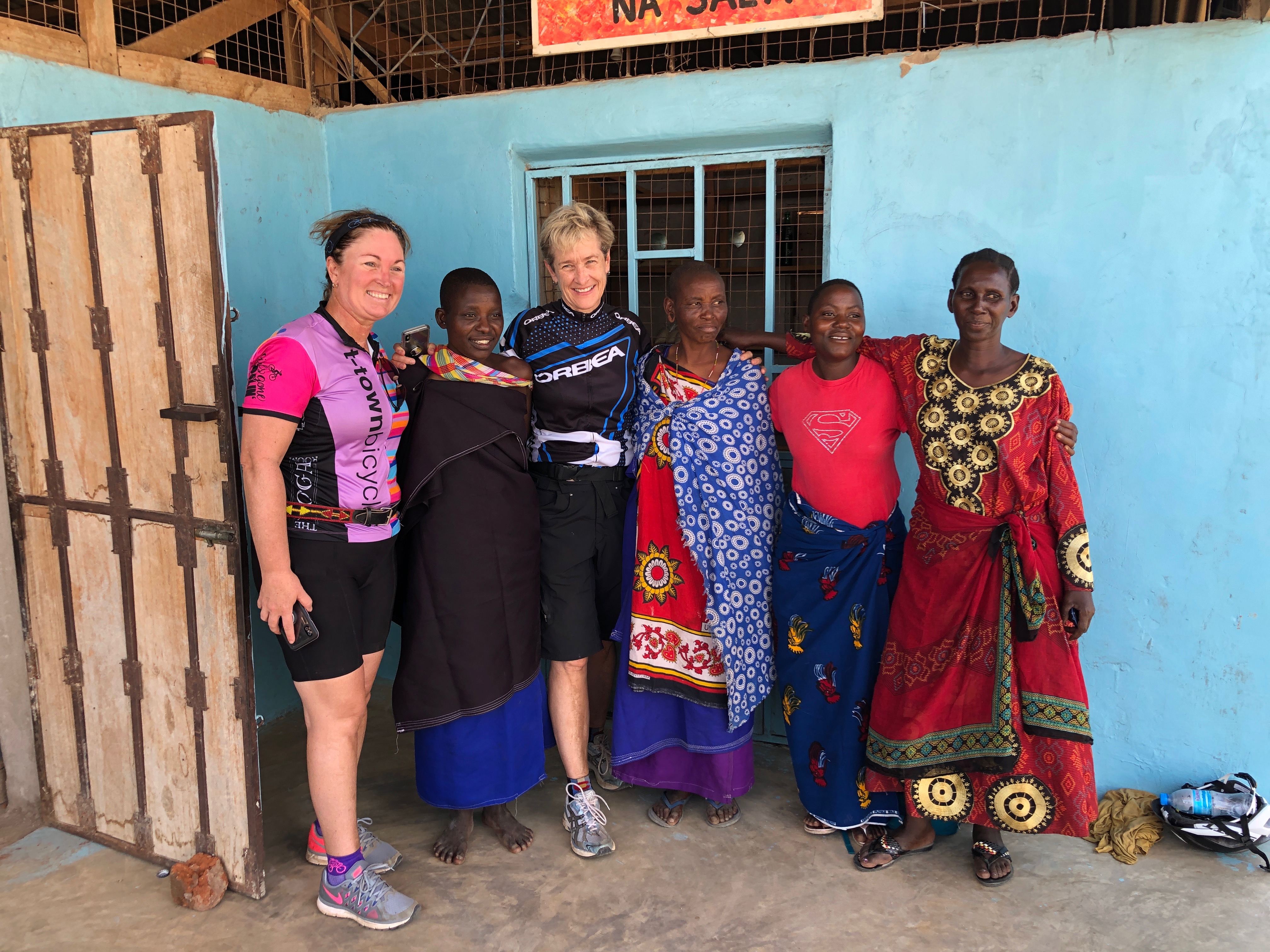DISCOVER YOUR LOCAL BICYCLING COMMUNITY
Find local advocacy groups, bike shops, instructors, clubs, classes and more!
International Women’s Day: Why Bicycles Really Matter
Happy International Women’s Day! The following is a guest blog written by Karen Miltner, a tour specialist at WomanTours (a Gold-level Bicycle Friendly Business!), recognizing the importance of bicycles in women’s empowerment. WomanTours is a company that specializes in bicycle tours by and for women. Karen lives and rides in the Finger Lakes region of New York.
 Today is International Women’s Day. In the bike world, it’s an opportunity to celebrate all the women shattering stereotypes of what the typical cyclist must look like and recognize the ability of bicycles to empower women. For WomanTours, International Women’s Day is also the first day of our Cross-Country: Southern Tier Tour. For the next 58 days, 26 women and three guides will cycle from San Diego, California, to St Augustine, Florida.
Today is International Women’s Day. In the bike world, it’s an opportunity to celebrate all the women shattering stereotypes of what the typical cyclist must look like and recognize the ability of bicycles to empower women. For WomanTours, International Women’s Day is also the first day of our Cross-Country: Southern Tier Tour. For the next 58 days, 26 women and three guides will cycle from San Diego, California, to St Augustine, Florida.
Yeah, it amazes me too.
WomanTours has been offering these types of outdoor adventure experiences to women since 1995. Throughout my lifetime, the bicycle has been a means for both practical transportation and joyful recreation. It has strengthened my body, boosted my confidence and introduced me to new people and places. It has helped me feel more at home and at ease in the world. Just as I have enjoyed so many fundamental civil liberties, opportunities and freedoms that were denied generations of women before me, I have taken the bicycle for granted.
In Europe and North America, women’s emancipation through bicycling began in the 1890s, when bicycles themselves were becoming more accessible, thanks to the invention of the safety bicycle. Unlike its risky predecessor, the giant-wheeled penny-farthing, the safety bicycle had reasonable, equal-sized wheels and pneumatic tires, and more or less resembled the bikes we ride today. Middle- and upper-class women immediately took to the sport, thrilled at its capacity for travel, fresh air, exercise, women-only and co-ed social engagement, new-found mobility and freedom.
Of course, there were the nay-sayers: the doctors who warned “wheeling” would damage a woman’s constitution (and sexual organs), the husbands who feared their wives would not come home in time to cook dinner, the moralists who mourned the sartorial shift from long skirts and petticoats to bloomers and tights.
Bicycling as an act of women’s freedom continues today.
In Pakistan, Girls on Bikes rallies have become an annual event in larger cities such as Islamabad, Lahore and Karachi. These rallies are an offshoot of the Aurat March movement, which has set aside International Women’s Day as a day for women to leave their homes and march (or pedal) for equality.
In Afghanistan, where the Taliban’s return to power in 2021 has led to dire setbacks in basic human rights as well as a crumbling economy, many Afghans have to rely on bicycles as their sole means of transportation. But women have lost even this core freedom.
According to Shannon Galpin, the American activist and writer who worked with Afghan women to form a competitive cycling team, the Taliban resurrection instilled such fear that athletes went into hiding and burned their jerseys and other cycling possessions to protect themselves during searches. There are glimmers of hope. Last summer, after months of hanging in limbo, members of the national women’s cycling team resettled in Italy, where they can pursue their dream.
As Galpin was quoted in one article: “We’ve seen this first generation of women become cyclists. And they did it not just because of sport; they did it because cycling is freedom of mobility, cycling is access. And so when I speak about bikes being a tool for social justice, I am looking right at the Afghan women, I’m looking at women who are using bikes to challenge the gender barrier to have the same freedom of mobility that their fathers and brothers have.”
Throughout Sub-Saharan Africa, bicycles are improving the lives of girls and women in very real and concrete ways. In Zambia, the Ministry of Education and World Bicycle Relief have distributed more than 36,000 bicycles to rural schoolgirls. A study from this campaign reported a 19% decrease in the dropout rate, a 28% improvement in absenteeism, and a 22% drop in harassment incidents. In Tanzania, globalbike has set up a network of rural bicycle rental and repair shops that give women entrepreneurs a leg up on their livelihoods. Compared to walking, reliable bike transportation frees up 65% more time for women to gather water for their homes and businesses, care for crops, and to get medical care. WomanTours is proud to partner with globalbike through our Tanzania: Service, Cycling and Safari Tour, donating all tour proceeds to globalbike and Tanzania.
 As I cheer on our 26 cross-country cyclists on this International Women’s Day, I plan on taking my own bike ride after work. It won’t be as long as theirs or as hard. But it will give me enough time to reflect on just how far women around the world have come in our journey toward self-determination and how far we still have to go.
As I cheer on our 26 cross-country cyclists on this International Women’s Day, I plan on taking my own bike ride after work. It won’t be as long as theirs or as hard. But it will give me enough time to reflect on just how far women around the world have come in our journey toward self-determination and how far we still have to go.
I hope you’ll join me.